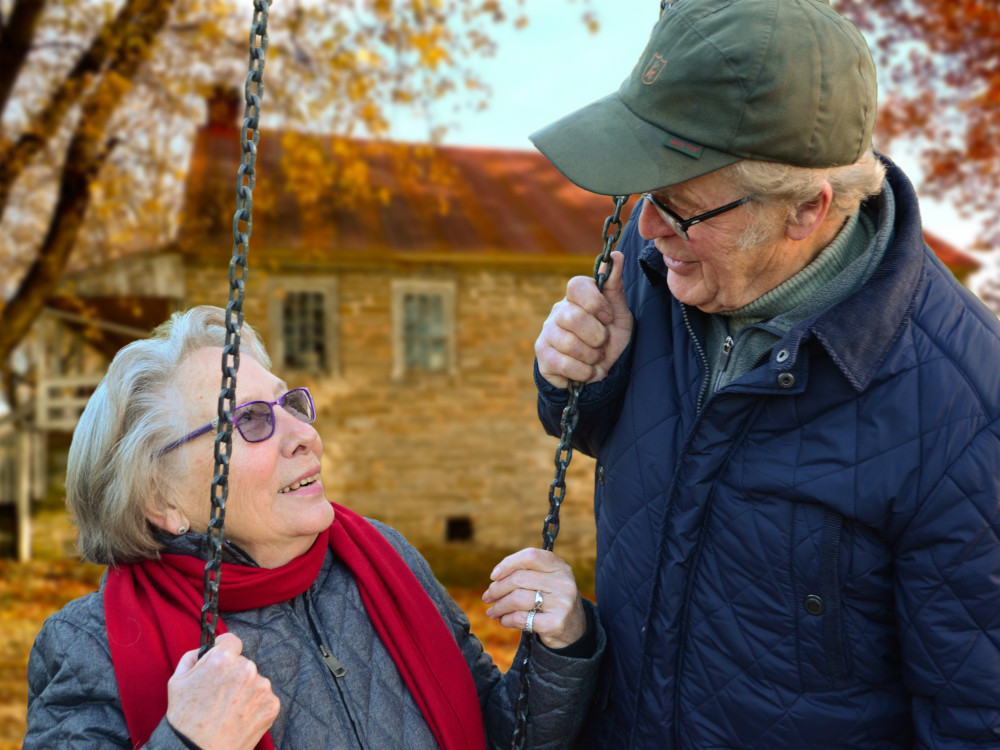A series by Chaplain Ben Boland. This article stands alone, but it is part of a series. The Church and Older People. This is Part 3 – Scripture and older people. Search “older people” at theothercheek.com to read the rest, or use the links at the bottom.
As Christianity’s central text is the Bible, examining how Scripture tells us to interact with older people is critical. Particularly as there is strong evidence that the church currently does not prioritise engagement with older people due to cultural pressure and poor theology. We will examine personhood and then a Biblical view of ageing before turning to the Biblical imperative to care for older people.
Personhood
Devaluing people, e.g. women, people of colour and people living with ‘disability’ as sub-humans, is the basis of, at best, discrimination and, at worst, abuse, slavery and genocide. While today we are becoming more aware of the various forms of discrimination and abuse, we also face cultural pressure regarding the question of who is a human. On the one hand, there is advocacy for some higher primates to be given human rights [7], while there are also arguments that people with advanced dementia cease to be people and can be ethically killed [8].
While these positions are somewhat extreme, our culture does tend to equate value with youth, economic contribution and cognition. The problem from a philosophical perspective is that all of these characteristics change. If a person’s value is derived from them, their value also changes (both over a 24hr period and their lifetime). Indeed, any view of personhood that relies on function devalues people with a lower function.
By contrast, the Bible presents people as having threefold immutable value on the basis that:
People are created by God (this value is also true of creation generally).
People are created in the image of God (Genesis 1)
People are so valuable that Jesus died (John 3).
It is based on this immutable value that God condemns murder and commands love for our neighbour. Indeed, regardless of function, older people are Biblically PEOPLE; they are valuable.
Biblical Aging
Having established that older people are immutably people, we can now examine the Biblical presentation of aging. While we do not know how old Adam and Eve were when they were created, it is clear that death was not a natural part of creation. This highlights an important reality while declining health is associated with ageing, it is not a normal or healthy part of aging. However, Scripture is also clear that as people experience later life, they commonly face increasing challenges (e.g. impotence – 1 Kings 1; baldness – 2 Kings 2; vision loss, arthritis/stooping, loss of strength, loss of teeth, hearing loss, fear and death – Ecclesiastes 12). As such, the Bible does not shy away from the challenges often associated with growing old.
Despite these challenges, Scripture reassures older people that God loves them (Isaiah 46), that age can bring wisdom (Job 12, 1 Kings 12) and presents several older people as amazing role models (Anna and Simeon – Luke 2). Additionally, God has a pattern of using older people (e.g. Moses, Abraham/Sarah and Zechariah/Elizabeth). Overall, therefore, Scripture presents growing older as a typically challenging time but also as a time of real hope.
Biblical care of older people
We have now seen that Biblically older people have immutable value; getting old can be hard but is not all negative. So, we can now focus on how the church is called to engage with older people, examining three key topics: neighbour, parent and widow.
While the commandment to love your neighbour is not unique to Christianity, Jesus did say it is critical. Because “neighbour” in this context refers to our fellow humans, which we have seen clearly includes older people. It is fair to say the starting point for our engagement with older people is to love them!
However, Scripture not only commands us to love our older neighbours; the ten commandments and Ephesians Six instruct believers to honour their parents. Sadly, this instruction has often been treated as only applying to children. Certainly, the Ephesians text is focused on children, but there is no evidence that any of the ten commandments are age limited – a number apply almost exclusively to adults. Given Jesus’ teaching about limiting Biblical commandments via legalisation, limiting this commandment simply to our biological parents is dangerous.
This brings us to Biblical teaching regarding widows – care for them! Certainly, not all widows are older, but most widows tend to be older. As such, “widow” is almost synonymous with older women. Indeed, as noted above, given Jesus’ teaching about narrow legalism, it is not unreasonable to consider “widows” to include older unmarried women. Of course, this raises the question of whether widows’ care extends to older single men. In any case, the numerous commandments to care for the poor certainly apply to older people who are often financially and relationally very poor.
Overall the Bible commands love, indeed, special love for older people.
Conclusion
The low love shown by churches to older people is a vast gulf from the care explicitly and repeatedly commanded by Scripture, which teaches love of older people based on them being our neighbours, our parents and their needs.
Footnotes
7 https://www.theguardian.com/world/2008/jun/26/humanrights.animalwelfare
8 https://petersinger.info/faq
Image credit: Pixabay/Pexels
The Church and older people series
Part 1 – Does the church love old people? The answer is we don’t prioritise them.
Part 2: Why the church does not love older people as much as Jesus did
Part 3: – this story


One Comment
Comments are closed.